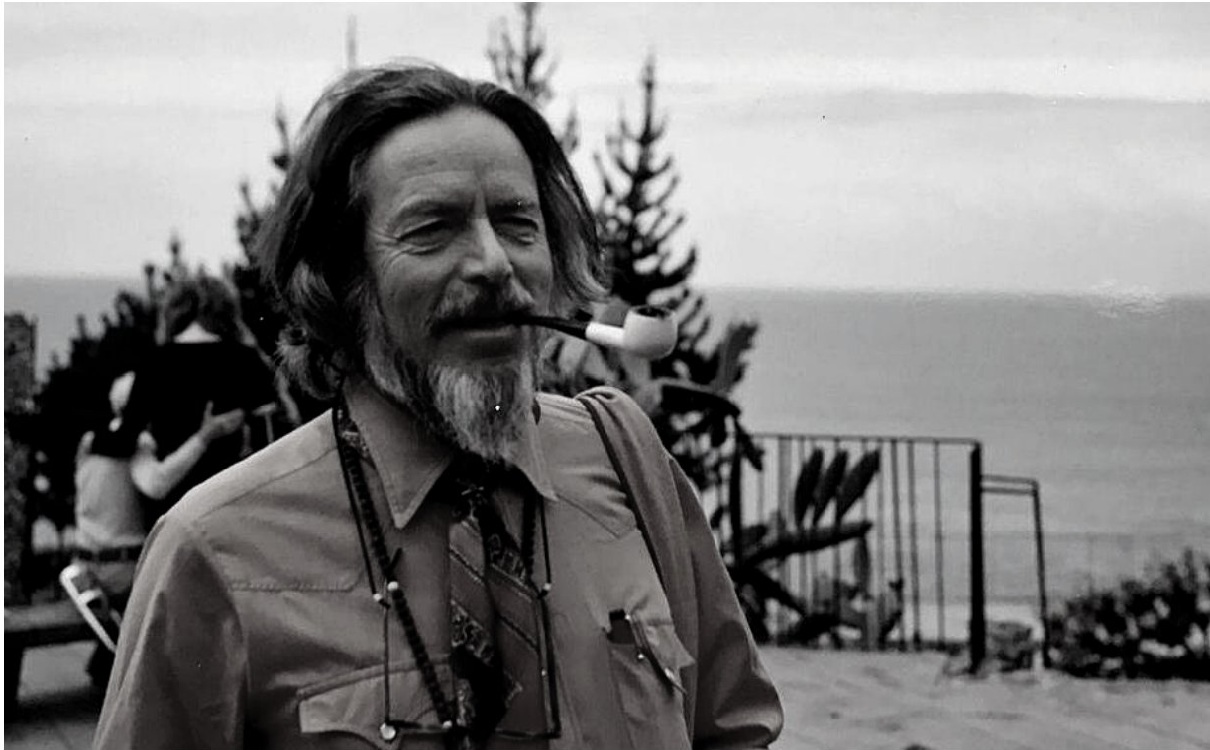Alan Watts is a well-known English writer, philosopher, and speaker. He mesmerises his audience with his profound insights into human essence and experience. Watts has left a distinctive impression on the field of philosophy as he harmonises the philosophy of Eastern, Western, and spiritual teachings. Furthermore, Let’s dive into Alan Watts’s biography, life and philosophy. Also, We will see how influential his writing and philosophy have been over his career.
A Bridge between Eastern and Western Philosophy
Alan Watts’s philosophy serves as a bridge between Eastern and Western philosophical traditions. He was interested in the philosophies of Zen Buddhism, Taoism, Hinduism, and other Eastern religions. He introduced Western audiences to ancient knowledge while questioning conventional habits of thought. In addition, Watts believes that everything in the world is interconnected. He also emphasises that people should live more in the present moment rather than delving into memories and future curiosity.
Embracing the Concept of “Oneness”
According to Watts’s teachings: The idea of “oneness”— that everything in the universe is interrelated and interdependent. He challenges people to recognise their underlying oneness with nature. He wanted people to see beyond the illusion of separation as we are one in all and all in one. This profound knowledge or view will move towards our consciousness, compassion, empathy, and responsibility for all living beings.
Living in the Present Moment
Watts was very persistent on the necessity of living in the present moment rather than focusing on past regrets or future fears. He always appreciated the immense beauty of each passing moment and cherished every moment to its fullest. He felt that immersing oneself in the current experience leads to true pleasure and happiness. Furthermore, individuals should let go of attachment and embrace uncertainty to acquire a profound appreciation.
Questioning the Nature of the Self
However, Watts is always concerned over the individual nature named “self”. He challenged the common concept that they should investigate their true identities beyond cultural influence and egoic ties. Watts emphasised self-discovery and introspection, challenging people to find their real “self”.
Celebrating the Joy of Being
Watts highlighted the intrinsic joy and playfulness of existence. He urged individuals to let go of restrictive expectations, cultural pressures, and the never-ending need for external validation. Instead, he encouraged them to have a child-like wandering mind to cultivate a new unimagined creativity approach. Watts believed that people should acknowledge the present moment and embrace the inherent beauty of existence, and it would allow people to live their lives fully and honestly.
Meanwhile, Alan Watts’ profound teachings continue to captivate audiences looking for a deeper grasp of spirituality, life and philosophy. He can bridge the gap between Eastern and Western philosophy and his emphasis on oneness. Further, he has left an indelible impact on society by living in the present moment, questioning the meaning of the self, and experiencing the joy of being. Watts inspires people to embrace the richness of existence and embark on a transforming journey of self-discovery through his writings, lectures, and recordings. Finally, he wants people to explore the limitless possibilities inside themselves and the world.
